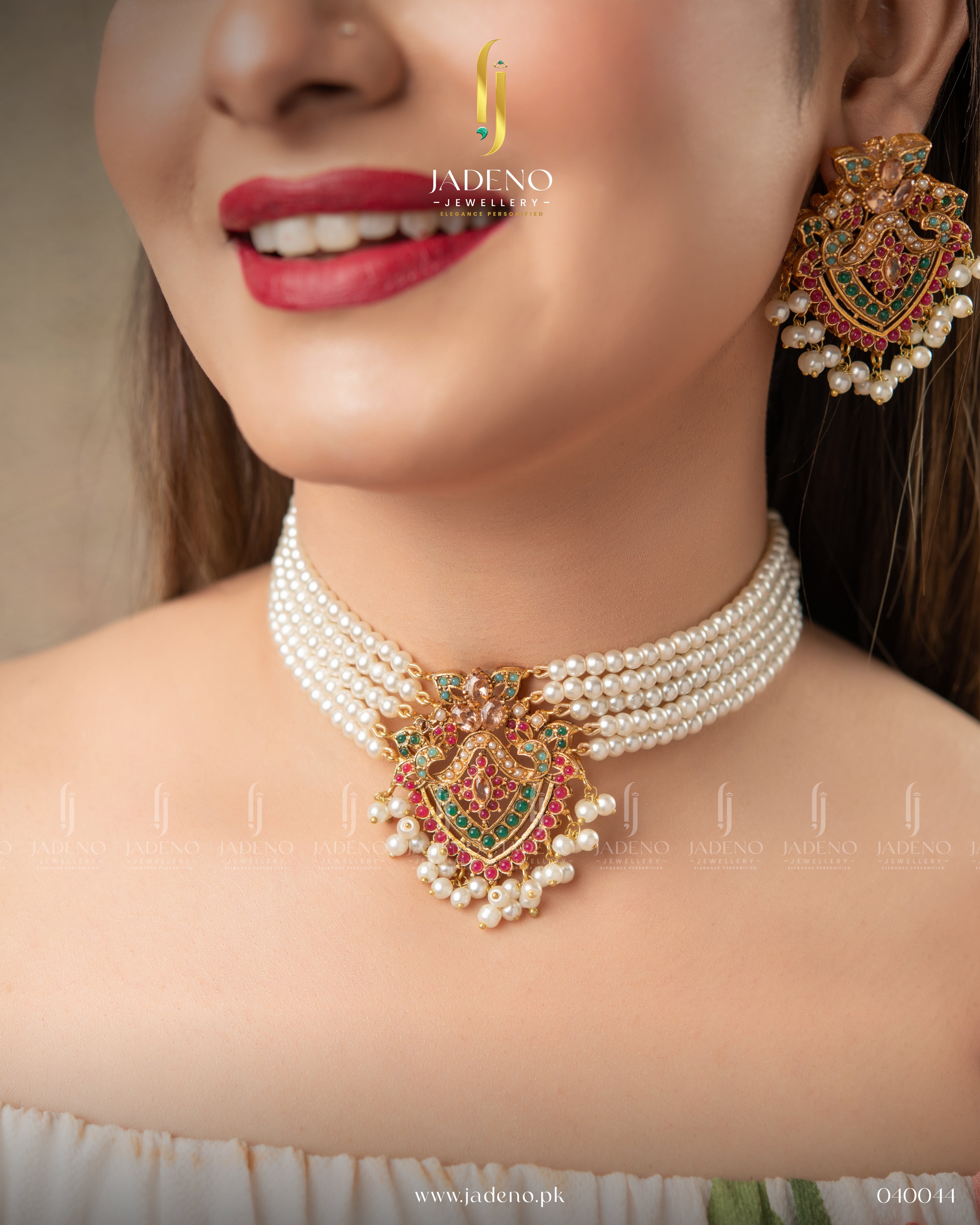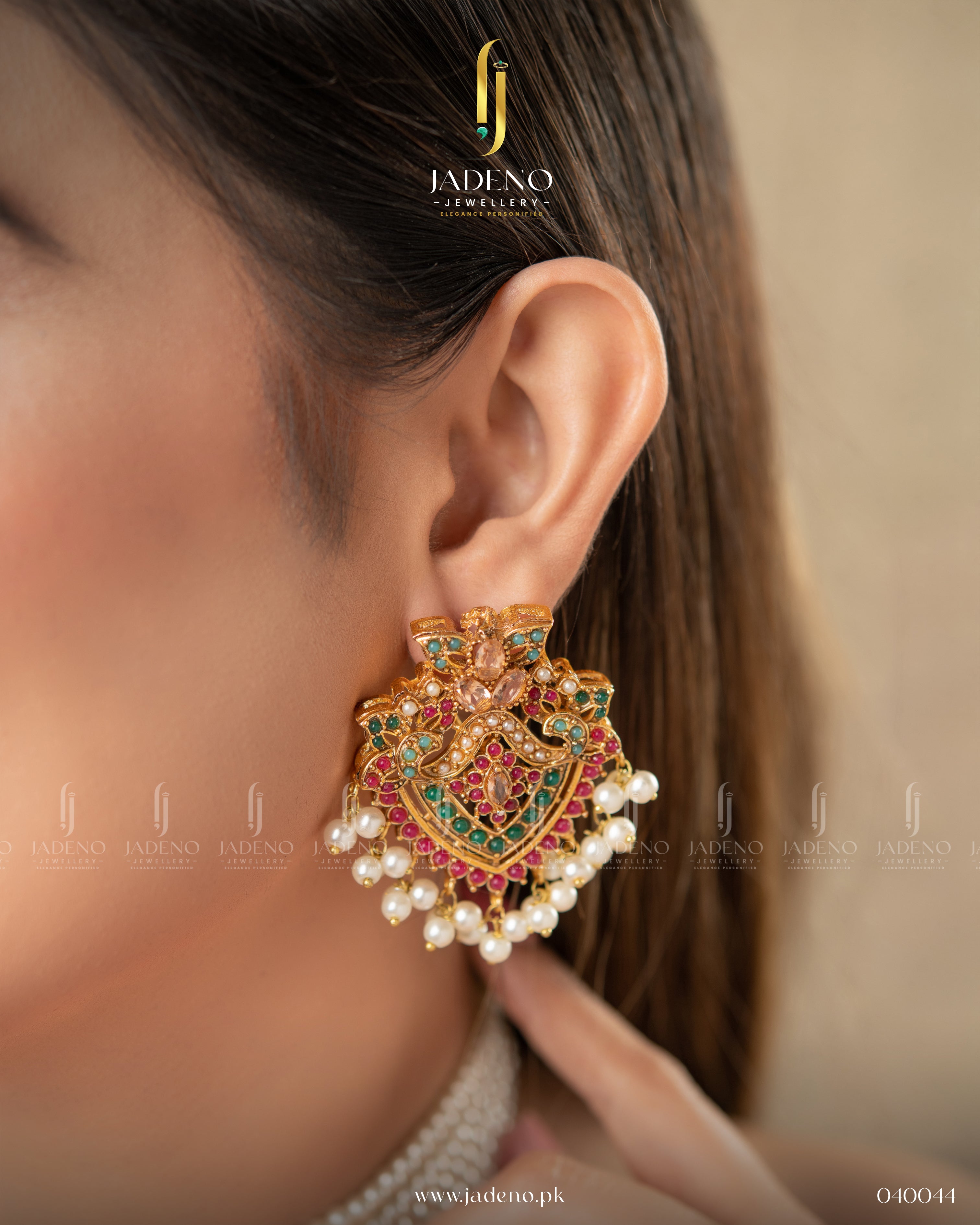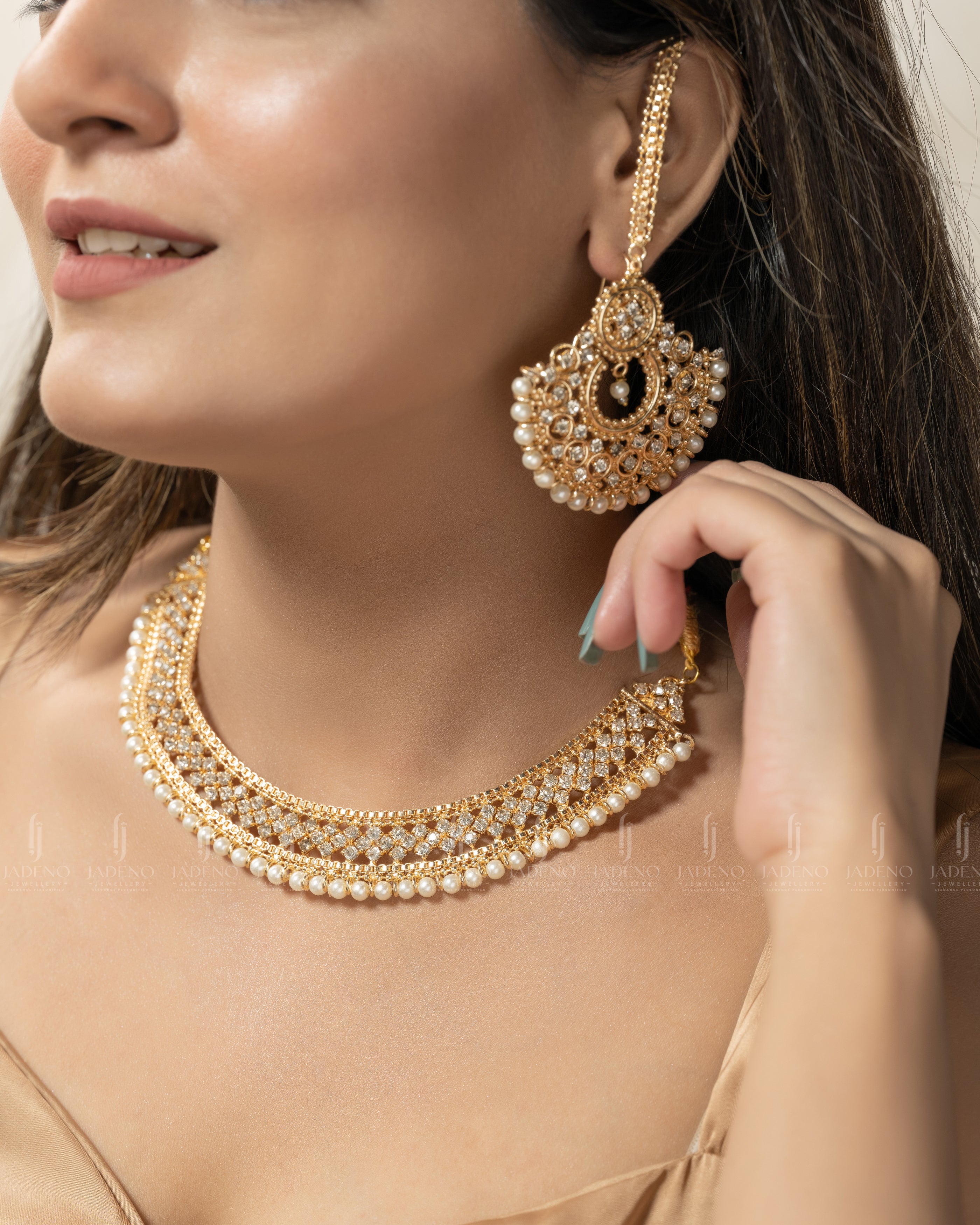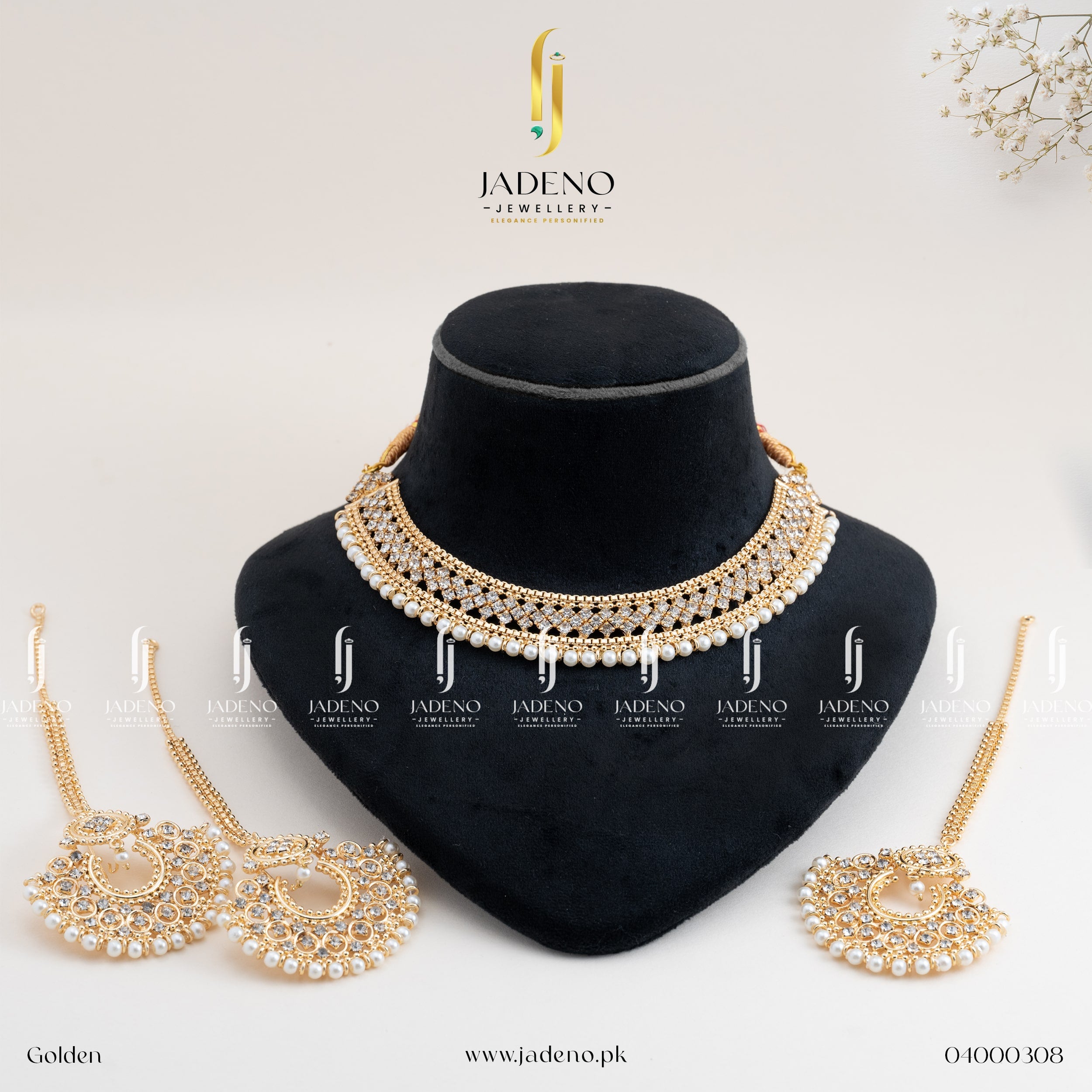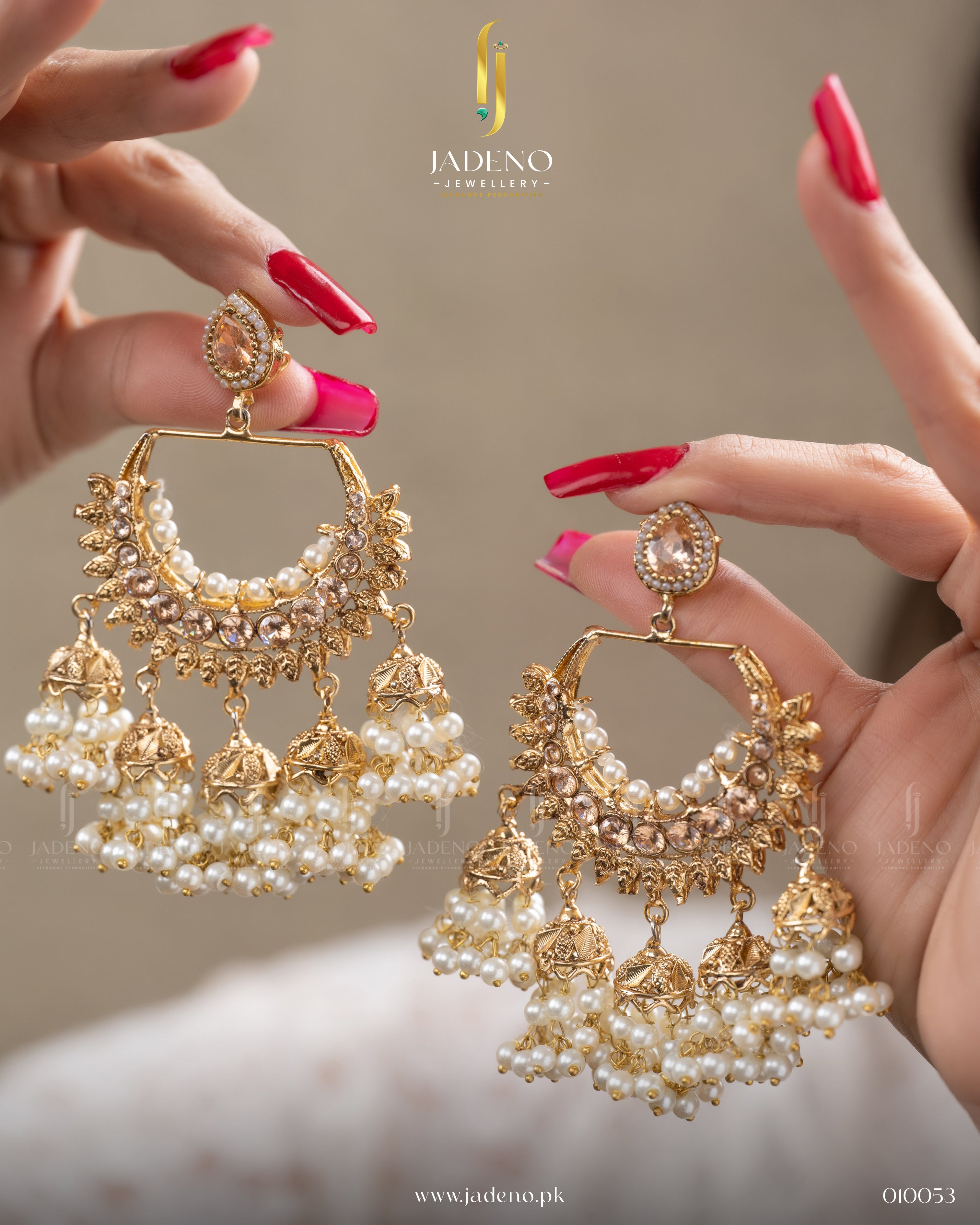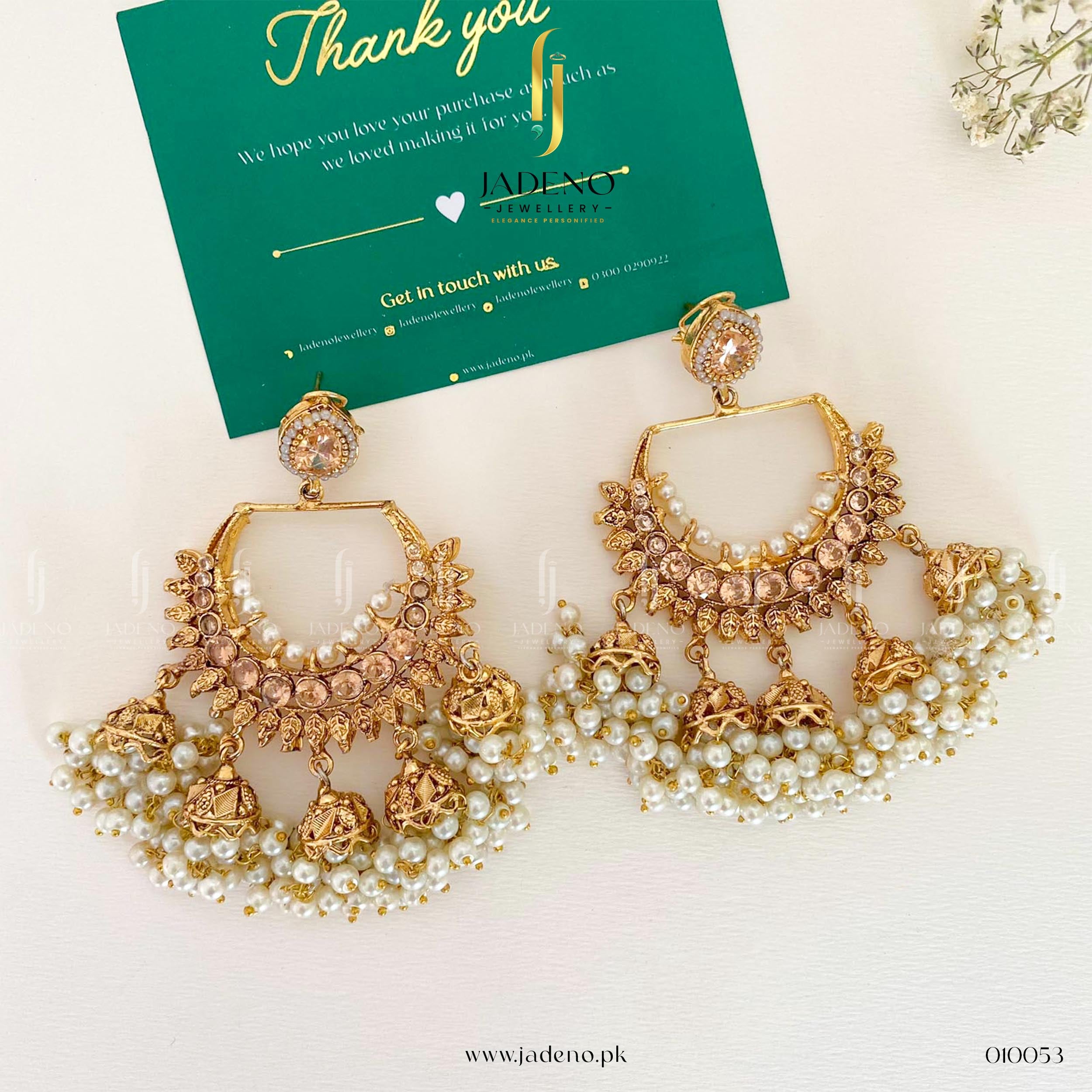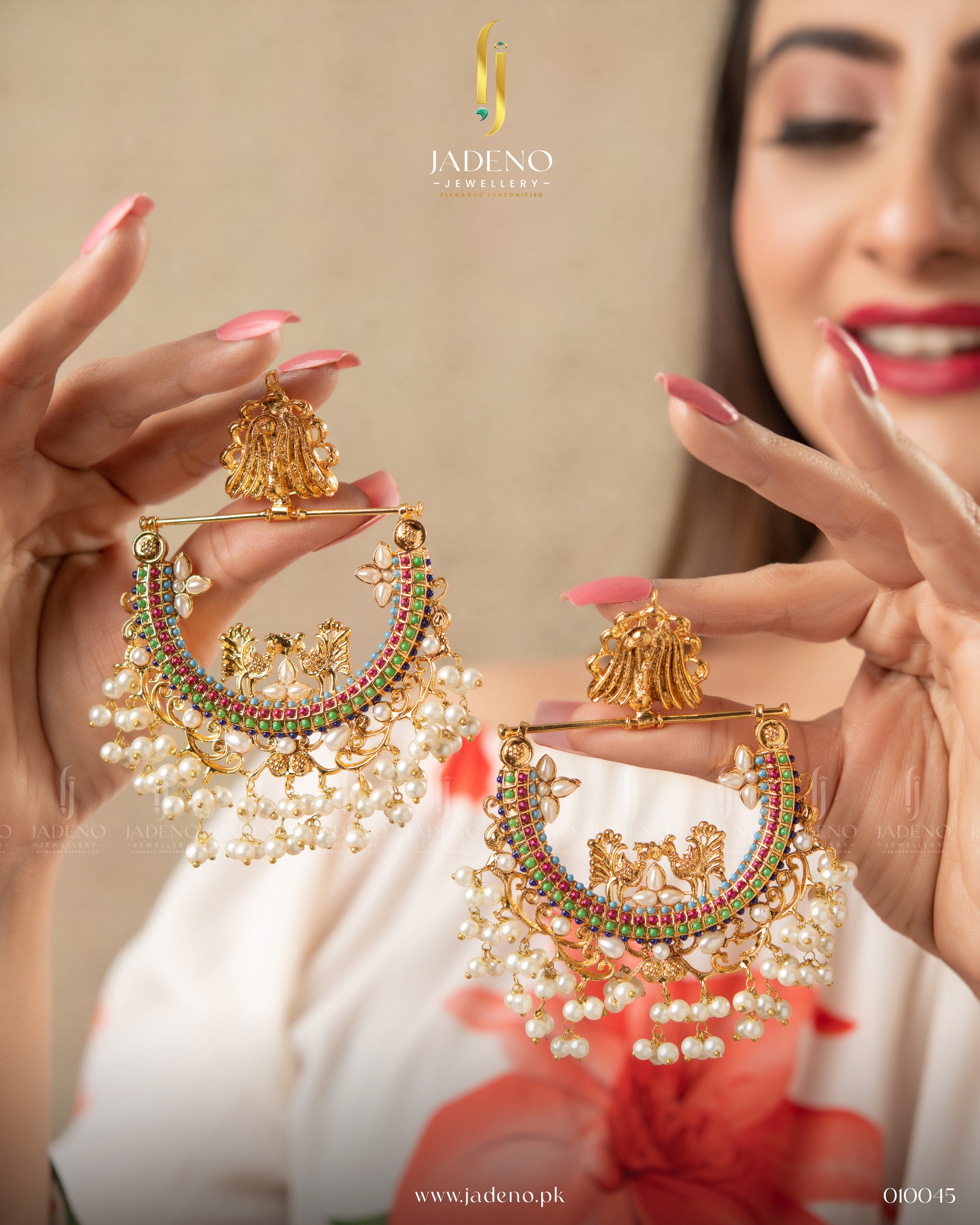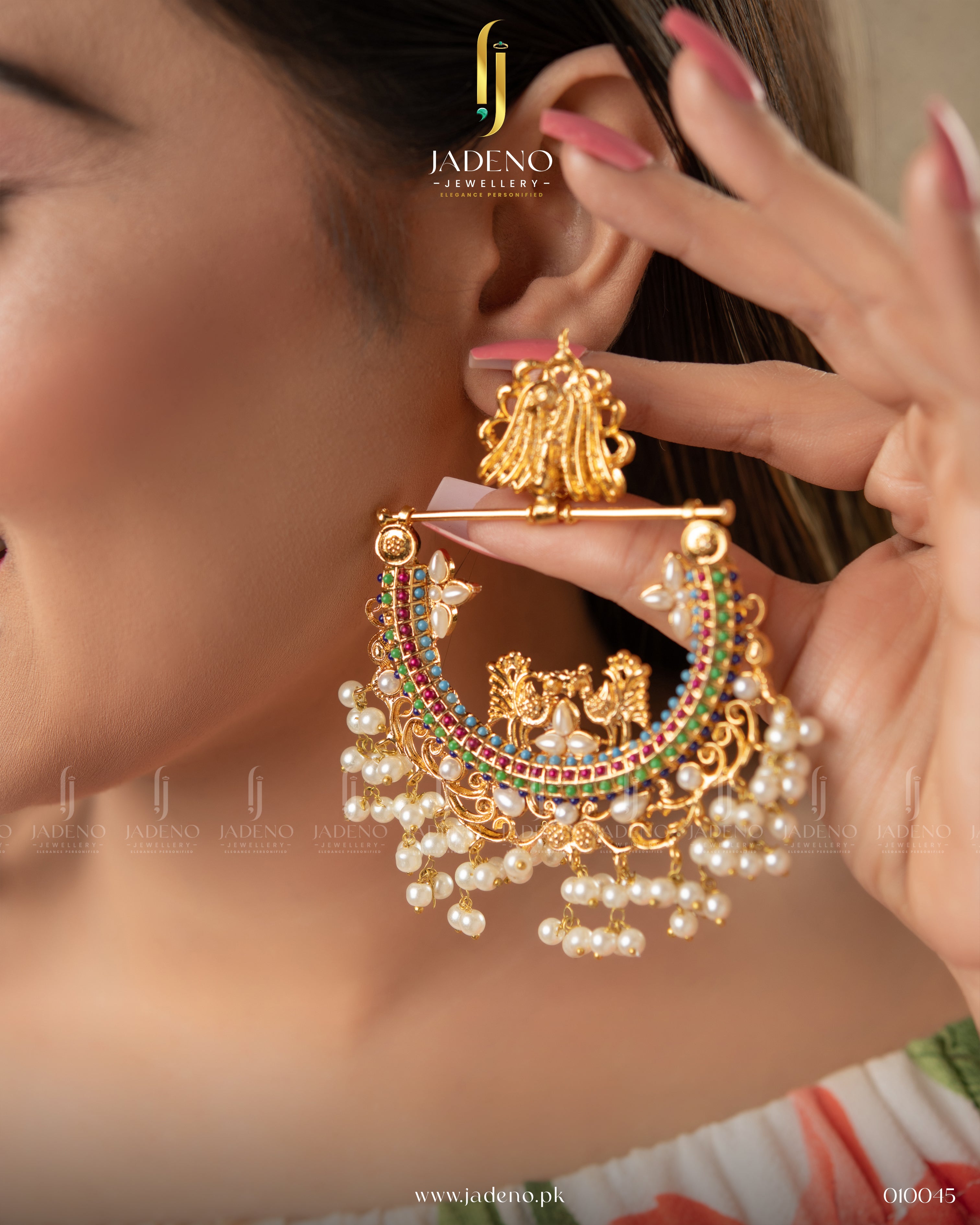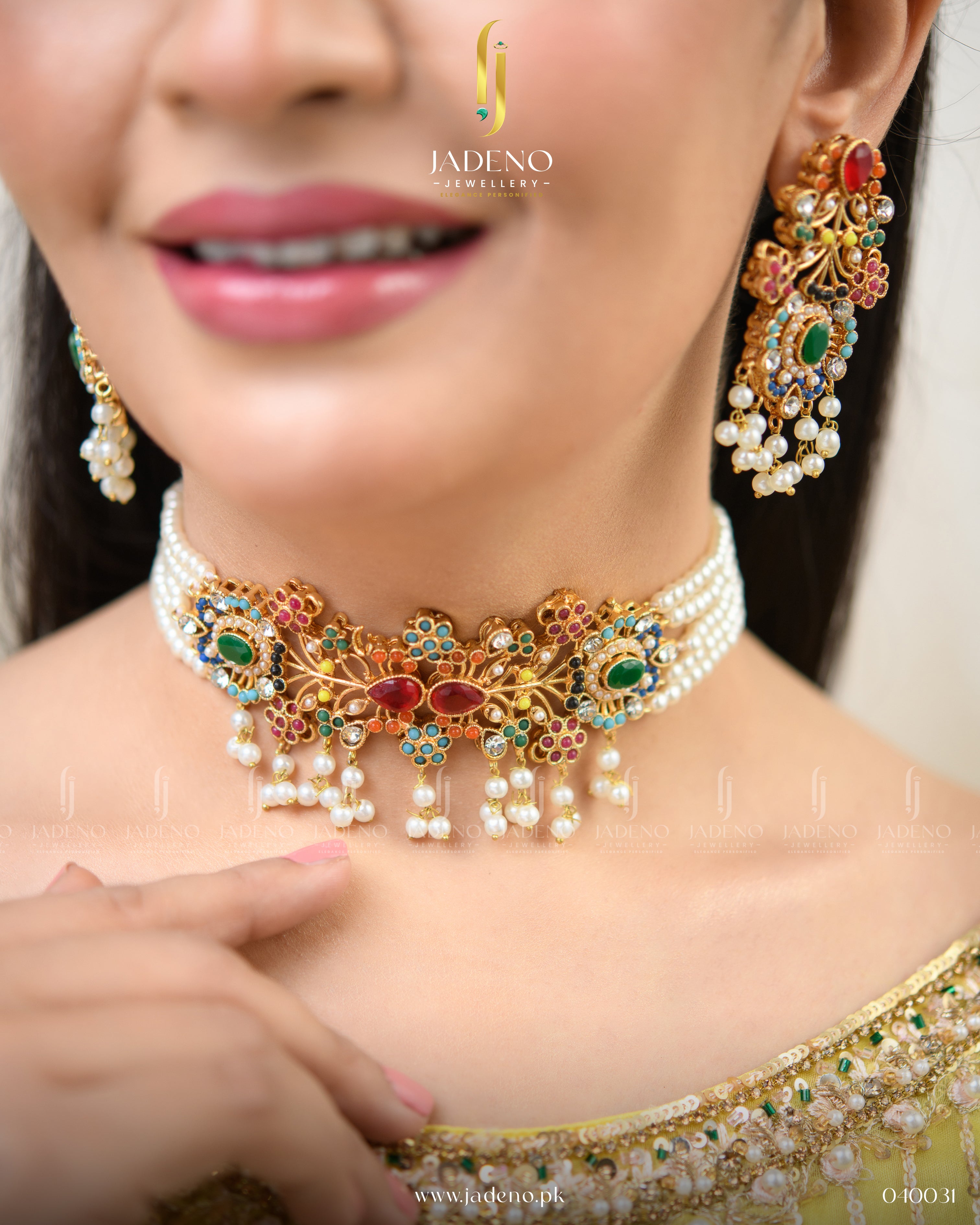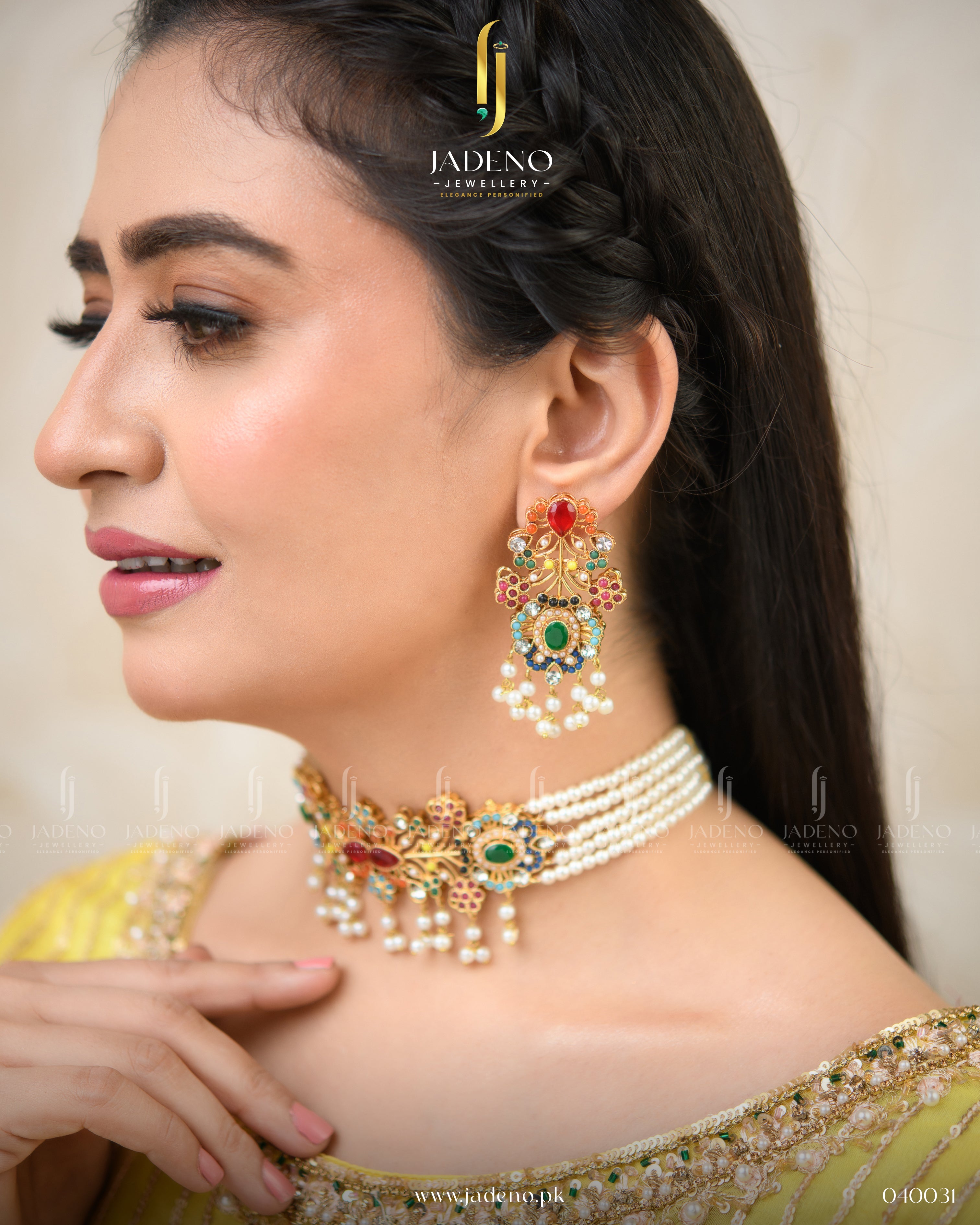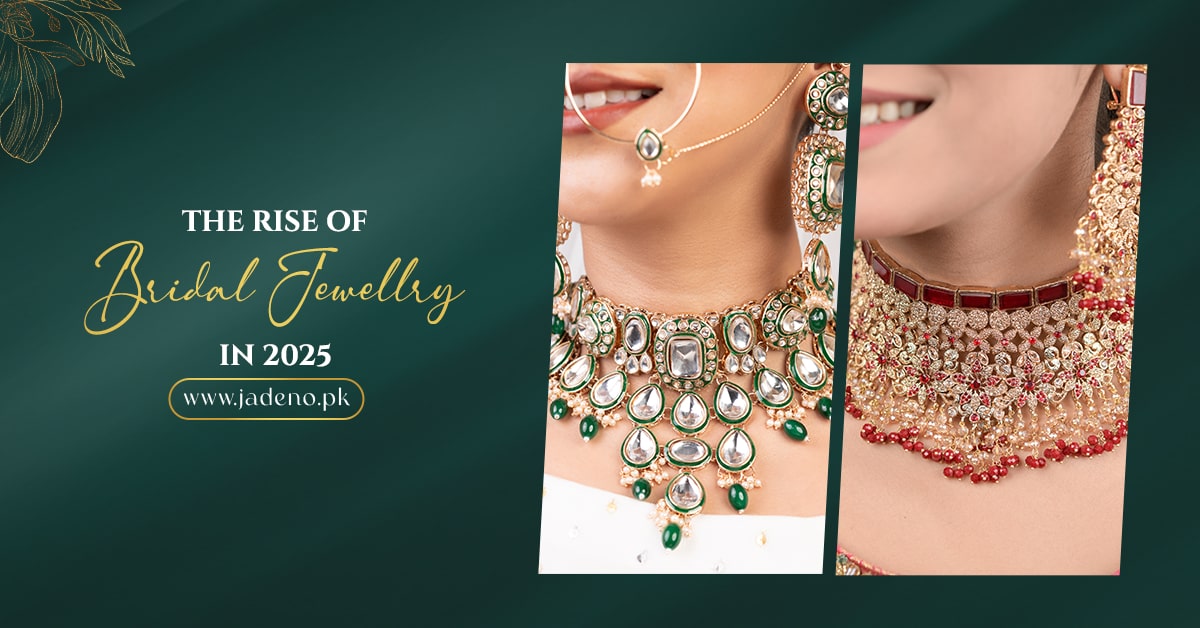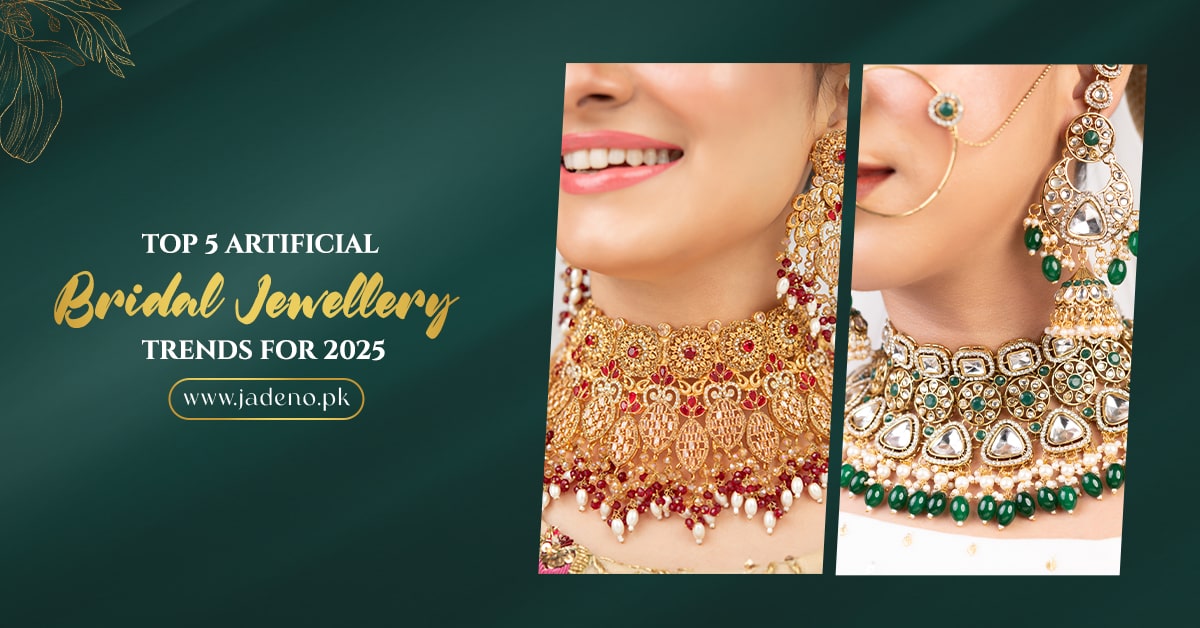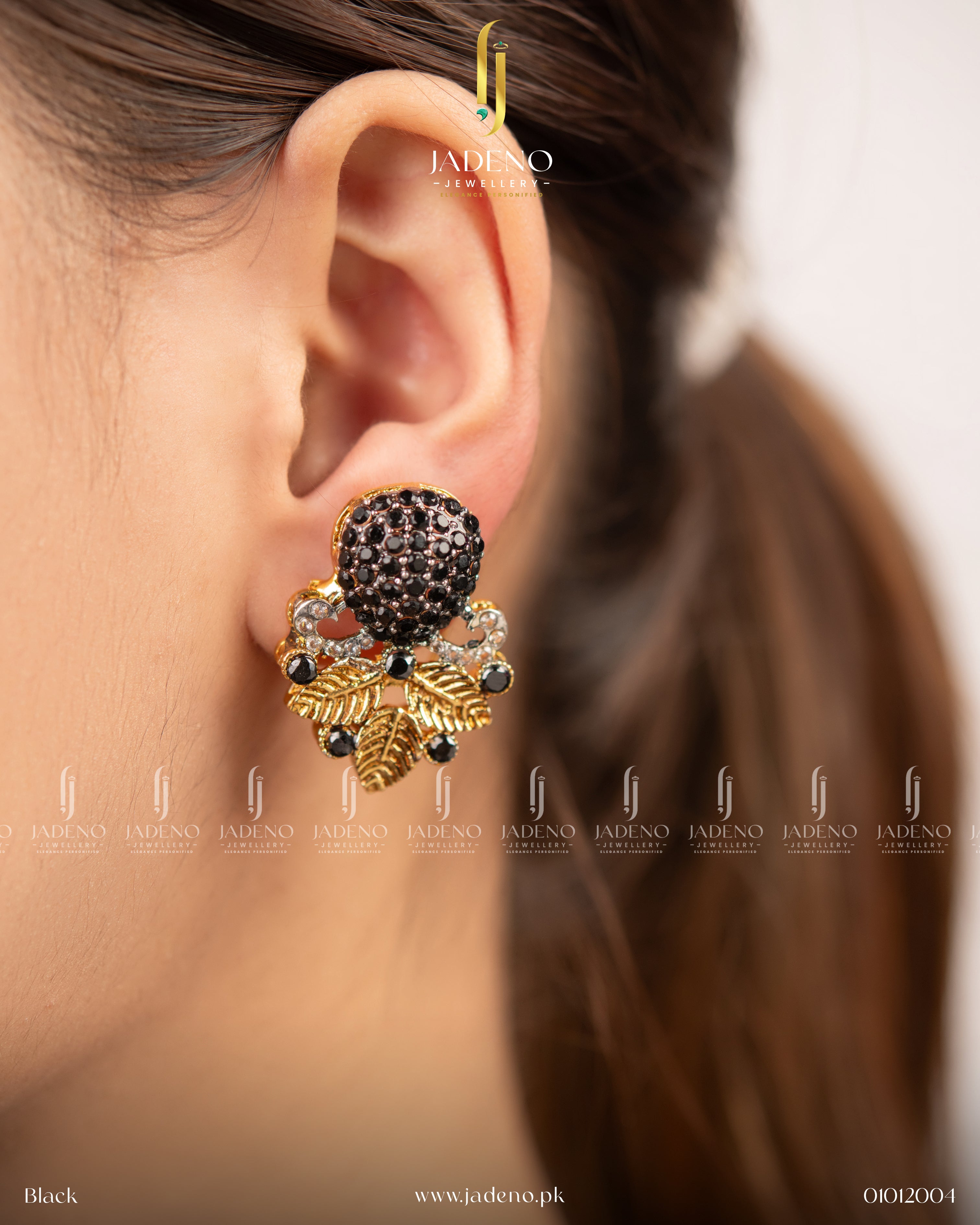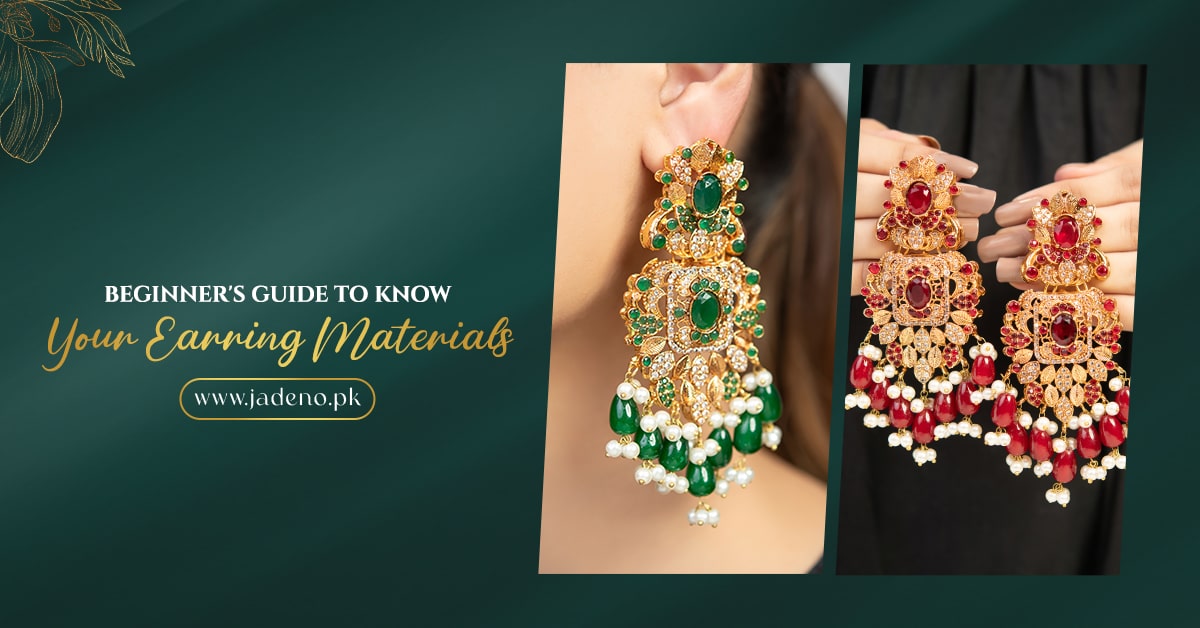
Beginner's Guide to Know Your Earring Materials
It's not just about shape, size, and shimmer when considering earrings, but also about what kind of material they are made of. “Whether you choose dainty earrings for casual wear or statement earrings for an occasion, material gets its due. Be it skin sensitivity, durability, or shine, material decisions can reverse the table either for you or against you,” says Aaliya Iftikhar, a 52-year-old boutique owner in Karachi.
Well, then you're in the right place! Within this beginner's guide to discovering different earring materials, we're going to lead you through most standard metals and materials, their advantages and disadvantages, and how to decide what's ideal for you and for your ears.
Earring Material Matters
Imagine buying beautiful earrings and then waking up later with itching, swelling, or green-tinged ears. Nightmarish, isn't it? Believe it or not, it's all too common. That's because all materials aren't created equal, and definitely not when about to sit snugly against your skin for hours at a stretch.
What can be influenced by the appropriate material?
- Comfort: Some metals irritate the skin, especially for those with sensitivities or allergies.
- Durability: Materials vary in how much time elapses before they will tarnish or break.
- Price: Not every sparkle is worth the same price.
- Maintenance: Some materials are more high-maintenance to keep them looking their best.
Then let's investigate more before you grab that flashy pair just because you like how it looks.
Popular Earring Materials and Their Benefits
1. Gold – Classic and Hypoallergenic
Gold earrings are classic, and for a very good reason. They're not only beautiful; they're also hypoallergenic and hence ideal for those who have sensitive skin.
Kinds of Gold:
- Yellow Gold: Purest looking and best for classics or old-school styles.
- White Gold: It is white in colour and normally plated with rhodium for additional lustre.
- Rose Gold: Copper is infused into it, which creates a warm pinkish colour.
Pros:
- Resistant to tarnish
- Proper for frequent use
- Richardson etch
Cons:
- More expensive than most substitutes
- Softness will also be dependent on karat
Tip: To minimise irritation, choose 14k or higher gold if you're allergic to nickel.
2. Sterling Silver – Affordable Elegance
Sterling silver, which is made from 92.5% pure silver and other elements (usually copper), is an affordable alternative for affordable luxury.
Pros:
- Looks like white gold but is less expensive
- Perfect for casual use
- It's easy to locate and extremely versatile
Cons:
- Prone to tarnish unless adequately protected
- Could be Irritating unless Pure Enough
Think of sterling silver like the little black dress of jewellery; it goes with almost any occasion!
3. Stainless Steel – Strong and Modern
If you're about function and fashion, then stainless steel might be yours. It's most ideal for minimalist items or men's earrings.
Pros:
- Highly durable and scratch-resistant
- Hypoallergenic for majority of
- Won't tarnish
Cons:
- Heavier than most materials
- Fewer design options than for silver or gold
Stainless steel is the workhorse of earring materials. Reliable, sturdy, and never misshapen.
4. Platinum – Premium and Long-Lasting
Want to invest in earrings that will really be worth wearing for years ahead? Platinum offers prestige and substance.
Pros:
- Very strong and highly resistant to corrosion
- Naturally hypoallergenic
- Maintains gloss at minimal maintenance
Cons:
- Very expensive
- Less frequently stocked than silver or gold
With platinum, you are not only buying jewellery; you are buying history.
5. Titanium – Ultra-Light and Allergy
If you have very sensitive ears, then titanium would possibly be ideal for you. It's used for surgical implants, which says a lot about how safe it is.
Pros:
- Hypoallergenic and biocompatible
- Very light, ideal for all-day wearing
- Modern aesthetic
Cons:
- Limited for elaborate styles
- Could be pricier than stainless steel
Wearing titanium earrings is like wearing clouds on your lobes: light, airy, and effortless.
6. Nickel – The Common Cause of Allergies
Nickel is most often found in cheap or fashion jewellery. It's also the most common allergen when it comes to earrings.
Pros:
- Affordable
- Common in trendy, mass-market fashions
Cons:
- Cause itching and rashes for many individuals
- Fades quickly
If you notice an itching sensation on wearing new earrings, nickel could be the silent culprit.
7. Plastic, Acrylic, and Resin – Colourful but be Cautious!
They are perfect for light, fun, and colourful creations. However, they aren’t for all.
Pros:
- Super light
- Comes in fun shapes and colours
- Budget-friendly
Cons:
- Can easily break
- May contain allergens and chemicals
They are like fast fashion—popular for a while, but not made to last.
How to Choose the Right Earring Material for You
1. Know Your Skin Type
For skin that is sensitive, opt for hypoallergenic components like gold (14k and above), titanium, and platinum. Avoid nickel altogether.
2. Think About Your Lifestyle
Do you happen to be someone who wears earrings on a daily basis? Pick sturdy materials like stainless steel or platinum. Like to switch things up? Silver or gold plating could be perfect.
3. Consider Maintenance
Not all materials are low-maintenance. If you don’t want to be polishing earrings every few weeks, avoid silver or nickel.
4. Fit Within Your Budget
You don’t need to break out the gold and platinum unless you are ready. There are plenty of silver, steel, or plated gold items that can provide comparable visual beauty without the cost.
Conclusion
Choosing earrings is not just about looks; it's about substance. What you pick determines how your ears will feel, how long earrings will even be on you, and how you'll feel about wearing them.
This beginner's guide to understanding different earrings’ materials will help you better decide on wiser and comfier choices. Remember, however, that the most beautiful earrings are those you can easily put on all day without a second thought.
FAQs
Q1: What is the best earring material for sensitive ears?
Titanium and platinum are two of the best for delicate ears, as they are hypoallergenic and biocompatible by nature.
Q2: How can I determine if I'm allergic to an earring material?
Some of the most frequent symptoms are itching, redness, swelling, or rash on the earlobe. Discontinue use and consult a dermatologist if you develop any of these symptoms.
Q3: Do sterling silver earrings tend to tarnish?
Yes, sterling silver can tarnish due to coming into contact with air and humidity. However, you can keep them looking new through regular cleaning and storage.
Q4: Can gold-plated earrings be safely worn every day?
They are largely harmless, but plates can chip over time and show base metal underneath, which can be irritating at times.
Q5: Is it all right to sleep or shower wearing stainless steel earrings?
Stainless steel is water-resistant and very tough and hence perfect for all-day, everyday wearing—including wearing to sleep or showering.

